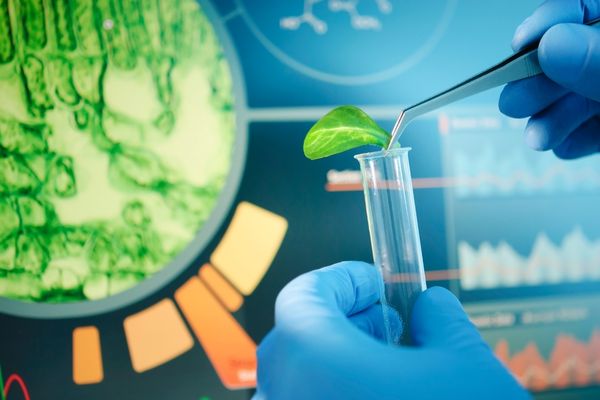
Deadline: 4-Apr-23
Do you know of a cutting-edge Carbon Removal research project that needs funding? The Carbon Technology Research Foundation is calling for research proposals focused on enhancing nature-based carbon sequestration using biotechnology.
Through this Call for Proposals, CTRF will fund cutting-edge research into the application of biotechnology to deliver enhanced, scalable solutions to carbon sequestration. Key research challenges have been identified and these form the priority areas of this Call. Projects focussed on the utilization of cutting-edge genomics and synthetic biology tools whilst investigating the role of microorganisms and plants in carbon sequestration processes are of particular interest to CTRF. This represents a snapshot of what may be possible in the application of biotechnology to the enhancement of nature-based carbon sequestration. CTRF remains open to highly transformative research which has the potential to disrupt and encourages researchers to engage with us in speculative discussion prior to application.
Projects focused on the utilization of cutting-edge genomics and synthetic biology tools whilst investigating the role of microorganisms and plants in carbon sequestration processes are of particular interest to CTRF. This represents a snapshot of what may be possible in the application of biotechnology to the enhancement of nature-based carbon sequestration. CTRF remains open to highly transformative research which has the potential to disrupt and encourages researchers to engage with them in speculative discussion prior to application.
Funding Information
- In 2023 there is up to £4M available for grants. It is anticipated that CTRF will fund up to 7 projects.
- CTRF will fund the direct costs of the research plus a contribution to eligible institution overheads at a rate of 10%. Please refer to CTRF’s Indirect Costs Policy for information on how to calculate this appropriately. Projects are expected to be no more than 36 months in duration. Equipment under £10,000 in value (including VAT) should be in the ‘Directly Incurred – Equipment Costs’ heading and a single quote should be provided as part of your application.
- Any individual items of equipment over £10,000 which will be utilised to deliver the proposed research should be discussed with CTRF in advance of application and further guidance will be provided.
Research Challenges
Whilst this opportunity is open to any proposal addressing a research challenge related to enhanced CDR through the application of biotechnology to natural processes, CTRF particularly welcomes proposals that:
- Utilise ground-breaking technological advances in genome editing (eg. CRISPR-Cas) and synthetic biology to enhance natural sequestration by key groups of organisms: bacteria, algae, archaea, fungi and higher plants.
- Seek to improve the photosynthetic efficiency of higher plants (and algae) through:
- Metabolic engineering to optimise efficiency of key enzymes.
- Replacement of key CO2 fixation enzymes with more efficient carboxylation enzymes or engineering of photorespiration bypass routes.
- Optimise other components of the photosynthetic machinery.
- Enhance light absorption through expansion of the photosynthetic active radiation spectrum.
- Creation of novel engineered carbon-fixing pathways.
- Modifying canopy or changing the morphology and biochemical composition of the root system.
- Engineering aquaporins.
- Utilising trees as carbon sinks.
- Attempt to understand unicellular & simple multicellular photosynthetic organisms (eg. microalgae) role in carbon sequestration and engineer more efficient strains.
- Engineering of faster-growing strains of macroalgae and/or strains that produce a higher proportion of carbon in their biomass.
- Investigate the role of bacteria in both terrestrial and oceanic carbon sequestration. Engineering of these photoautotrophic organisms to sequester carbon more efficiently and/or to enhance their biomineralization capabilities.
- Apply genome editing to molecular breeding of fungi to enhance their carbon sequestration capabilities in marine and terrestrial ecosystems.
- Try to understand the potential of soil carbon sequestration for carbon removal; investigate and adapt the root-soil ecosystem and explore symbiotic relationships with microbes and fungi.
- Explore co-cultivation of nitrogen-fixing or carbon concentrating organisms such as cyanobacteria.
- Undertake fundamental research into the sequestration potential of archaea.
- The application of biotechnology to enhanced weathering; investigating colonies of microorganisms, plants, lichens and fungi that co-exist in local ecology to speed up dissolution rates.
- Seek to promote bio-enhanced mineralisation through engineering of sub-surface microbiota.
Artificial ocean alkalinization, cell-free CO2 -fixing enzymatic systems and the generation of artificial leaves and hybrid systems (the combination of biotic and abiotic components) are peripheral to the scope of CTRF. All applicants seeking to explore the biological aspects of these CDR innovations are encouraged to contact CTRF for an initial remit discussion.
Eligibility Criteria
CTRF is a global funder; CTRF aims to fund the highest impact research programmes. Researchers in higher education institutions or public or not-for-profit research establishments are eligible to apply for a CTRF grant.
Eligible principal investigators for a CTRF standard research grant must be at least one of the following:
- Employed at the administering research organisation at equivalent to lecturer-level or above (tenure-track).
- Hold a fixed-term contract that extends beyond the duration of the proposed project and the host organisation is prepared to provide all the normal support available to permanent employees.
- Hold an externally funded fellowship. These will be considered on a case-by-case basis, please discuss with CTRF in advance of your application.
Applicants can be the lead/principal investigator on one proposal only and co-investigator on additional proposals.
For more information, visit CTRF.